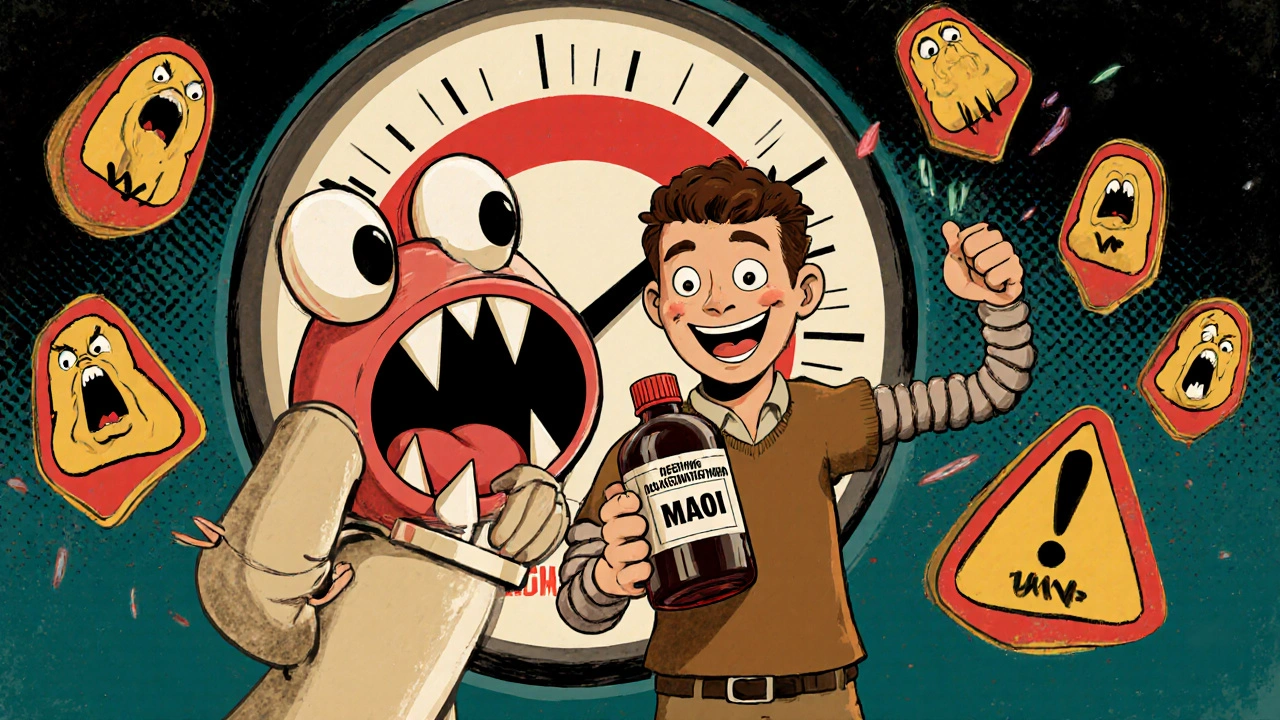MAO Inhibitors: What They Are, How They Work, and What You Need to Know
When we talk about MAO inhibitors, a class of antidepressants that block the enzyme monoamine oxidase to increase brain chemicals like serotonin, norepinephrine, and dopamine. Also known as monoamine oxidase inhibitors, they were among the first drugs developed to treat depression—but they’re not used as often today because of strict dietary rules and dangerous interactions. Unlike newer antidepressants like SSRIs, MAO inhibitors work differently: instead of just boosting serotonin, they stop your body from breaking down multiple mood-regulating chemicals at once. That can make them more effective for people who haven’t responded to other treatments, especially those with atypical depression, anxiety, or panic disorders.
But here’s the catch: MAO inhibitors, require careful management because they can cause life-threatening reactions when mixed with certain foods, supplements, or medications. Also known as monoamine oxidase inhibitors, they interact badly with things like tyramine-rich foods (aged cheese, cured meats, soy sauce), stimulants, cold medicines, and even some herbal supplements like St. John’s wort. One of the biggest risks is serotonin syndrome, a dangerous buildup of serotonin that can cause high fever, rapid heartbeat, confusion, and seizures. Also known as serotonin toxicity, it’s rare but can be fatal if not treated fast. That’s why doctors usually only prescribe them after other options fail—and why patients need clear, detailed instructions on what to avoid.
Even with these risks, MAO inhibitors still have a place in treatment. For some people with treatment-resistant depression, they’re the only thing that works. The newer versions, like the selegiline patch, reduce dietary restrictions and are easier to manage. But whether you’re on an older pill like phenelzine or a newer patch, you still need to be vigilant. Always tell every doctor you see that you’re taking an MAO inhibitor. Even a simple over-the-counter cough syrup can trigger a reaction. And if you ever feel your heart racing, your head pounding, or your body getting hot out of nowhere, seek help immediately.
The posts below cover real-world stories and practical advice about how MAO inhibitors fit into broader medication use—from tracking side effects to understanding how they interact with other drugs like statins, anticoagulants, and ADHD meds. You’ll find guides on spotting dangerous combinations, keeping a symptom diary, and knowing when to push back on a prescription. This isn’t just theory—it’s what people actually deal with when managing complex mental health treatment.

MAO Inhibitors: Dangerous Interactions with Common Medications
Haig Sandavol Nov 16 12MAO inhibitors can be life-saving for treatment-resistant depression-but mixing them with common medications, supplements, or foods can cause deadly reactions like serotonin syndrome or hypertensive crisis. Know the risks.
More Detail